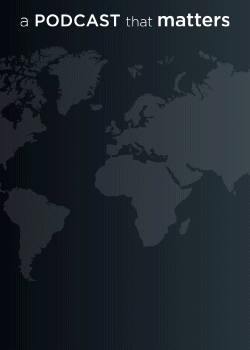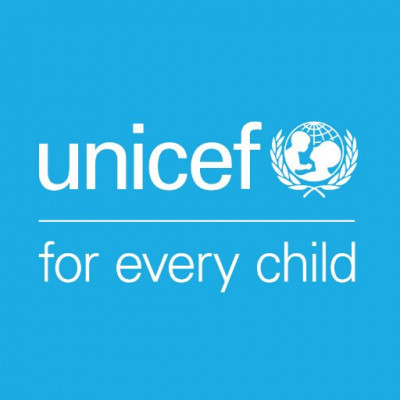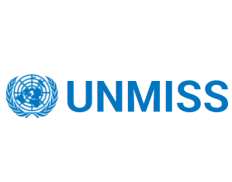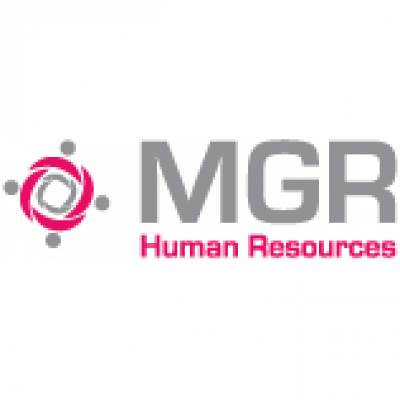Details
Description
Background
There are numerous UN inter-governmental mandates for gender equality and the empowerment of women (GEEW). In 2015, UN Member States adopted the 2030 Agenda for Sustainable Development with the Sustainable Development Goals (SDGs) at its core. The agenda commits all countries and stakeholders to work together to achieve sustained and inclusive economic growth, social development, and environmental protection. Leaving no one behind and reaching the furthest behind first is at the core of the agenda. This is underpinned by the principle of GEEW, grounded in the norms and standards the United Nations is tasked to uphold and promote, including coherent and integrated system-wide gender-responsive planning, implementation, and reporting.
The latest UN General Assembly resolution 71/243 from the Quadrennial Comprehensive Policy Review (QCPR) adopted in December 2016 reaffirmed that promoting gender equality and empowerment of all women and girls, in accordance with the Convention on the Elimination of all Forms of Discrimination Against Women (CEDAW), the Beijing Declaration and Platform for Action and the outcomes of relevant UN conferences and resolutions of the General Assembly, is of fundamental importance and has a multiplier effect for achieving sustained and inclusive economic growth, poverty eradication and sustainable development. The QCPR resolution furthermore calls upon all entities of the UN development system to continue to promote women’s empowerment and gender equality by enhancing gender mainstreaming through the full implementation of the System-wide Action Plan on Gender Equality and the Empowerment of Women as well as the UNCT performance indicators for gender equality and the empowerment of women (the “gender equality scorecard”), in particular with regard to gender-responsive performance management and strategic planning, the collection and use of sex-disaggregated data, reporting and resource tracking, and drawing on available gender expertise in the system at all levels to assist in mainstreaming gender equality in the UN development assistance planning frameworks.
Subsequently, the UNCT in South Sudan in 2021 agreed to conduct a Gender Score Card Exercise under the leadership of UN Women and the Resident Coordinators Office. The assessment took place from April to July 2021, during the third year of the United Nations Cooperation Framework UNCF 2019-2021 implementation (recently extended to 2022). Its objective was to assess the effectiveness of the UN Country Team in gender mainstreaming and the promotion of gender equality and women’s empowerment, as well as provide a set of actions that will lead the UNCT in South Sudan making improvements in the mainstreaming of gender system wide. One of the findings from the Scorecard assessment was that UN agencies in South Sudan do not currently have a mechanism to track gender parity and therefore there were no trends regarding gender parity that could be demonstrated. Therefore, the action plan outlined from the assessment recommended that the UNCT in South Sudan, put in place a permanent mechanism to collect and analyze UN sex disaggregated staff data, to monitor gender parity. Further to that, the recommendations also highlighted the importance of developing a comprehensive Gender Parity Strategy in UN South Sudan with specific actions and targets to ensure a progressive reduction of current gender impurities, particular among national staff.
In seeking to secure the UNCT South Sudan standing as a top UN-SWAP performer, the functional UNCT proposed for a Gender Parity Pledge and Guidelines on how to achieve and monitor Gender Parity at the UN in South Sudan. The Gender Parity Pledge is therefore a continued effort of the UNCT in South Sudan to put in place measures outlining different actions that the UN leadership can undertake to strengthen their efforts, in advancing gender parity in UN operations and work environment.
The goal of gender parity at all levels in the UN is a commitment that is now two decades old and is reflective of core values that are as old as the Organization itself. In the intervening years there has been no shortage of policies, reports and recommendations to further this goal such as the Secretary-General’s System-wide Strategy on Gender Parity or the Enabling Environment Guidelines.
In South Sudan, the gender parity is far from being achieved. For example, in 2021, women make only 36% of the UN staff while men make 64%. UN staff in South Sudan comprised a total of 4,953 staff; 1,675 women and 3,278 men, which included international, national, and national volunteer contracts. The biggest gap is in the national staff’s category, where women account only for 23%, followed by international staff where 40% are women. National volunteer contract is the only category where gender parity was close to being achieved (47% women, 53% men). The figures showed the plain under-representation of women in some of the most visible and critical categories: leadership and senior management. Parity does not simply mean a focus on women alone and areas of over-representation must also be addressed.
Therefore, the UNCT in South Sudan recommits itself towards achieving gender parity, going beyond numbers and over-representation, the UNCT in South Sudan recognizes that it is now time to increase the rate of progress. It commits to implementing actions that ensures gender parity is given the attention it deserves, whilst accelerating actions that moves the UNCT in South Sudan closer to reaching gender parity and strengthening organizational culture for an inclusive, enabling work environment.
The objectives of this consultancy are the following:
In consultation with UN Women and the Resident Coordinators Office lead on a joint initiative to develop a UN system-wide interactive dashboard on gender parity. The dashboard will provide up-to-date information on the progress made on gender parity in UN entities and enhance accountability and transparency, as recommended in the Secretary-General's System-wide Strategy on Gender Parity. The interactive dashboard will showcase information and evidence on progress made and actions taken by each of the agencies on each of the areas highlighted in the practical guide e.g., setting targets and monitoring progress, leadership, and accountability, recruitment and retention, Progression, Retention and Talent Management, Creating an Enabling Environment and Mission settings. The dashboard will serve all UN personnel, including Heads of Entities, Resident Coordinators and Heads of Missions with transparent and updated information on gender parity. technical advice and support for the finalisation of the dimension on integrating “gender, equity and human rights”. The Gender Parity Dashboard will show the latest gender balance data. The dashboard will also focus on the target population of national and international staff in the UNCT in South Sudan, as defined in the UNCT South Sudan Gender Parity Pledge. It will drill down to gender balance by entity and professional level.
Duties and Responsibilities
Under the overall guidance of UN Women Country Representative and direct supervision of the UN Women Deputy Country Representative, and in close consultation with GTG members, the consultant will do the following:
Deliverables:
- Brief inception report including outline of approach and detailed timeline for the assignment and session outline for technical briefing with GTG;
- Preview of the Dashboard created along with a PowerPoint presentation on how to operate the dashboard;
- Final view of the dashboard with PowerPoint presentation of how to operate it addressing feedback from GTG, PMT, OMT, UNCT and RCO.
Functional Competencies:
- In-depth knowledge of gender equality and women's rights issues;
- Demonstrated ability to interact effectively with national and local partners;
- Knowledge and understanding of UN system;
- Past experience of work in an national environment;
- Excellent writing, analytical, training, presentation skills;
- IT literacy with sufficient use of Microsoft Words, Excel and Power Point Presentation;
- Behavioral Competencies:
- Very effective at multi-tasking;
- Strong analytical and interpersonal skills;
- Strong initiative-taker;
- Excellent communication skills;
- Focuses on impact and results for client;
- Identifies opportunities and builds strong relationships with client and external actors;
- Participates effectively in team-based, information-sharing environment, collaborating and cooperating with others;
- Consistently approaches work with energy and a positive, constructive attitude.
Competencies
Core values:
- Integrity;
- Professionalism;
- Respect for Diversity.
Required Skills and Experience
Education:
- Master’s degree in computer science, Engineering, Mathematics, Data Science, or other relevant advanced degree is mandatory.
Experience:
- Proficient user of Microsoft Office applications (Word, Outlook, PowerPoint, and Excel, particularly in the creation of Pivot tables) and the design of websites for over 5 years;
- The consultant must demonstrate experience in building software tools and Hands-on experience in analyzing complex telecoms data;
- Excellent communication and presentation skills and ability to maintain effective partnerships and working relations in a multi-cultural environment with sensitivity and respect for diversity;
- Demonstrated ability to create dashboards;
- Demonstrated ability in report drafting and data collection;
- Prior experience with the UN including experience of inter-agency work on gender equality.
Language Requirements:
- Fluency in English is required;
- Knowledge of Arabic is an asset.
Application:
All applications must include (as an attachment) the completed UN Women Personal History form (P-11) which can be downloaded from: https://www.unwomen.org/sites/default/files/Headquarters/Attachments/Sections/About%20Us/Employment/UN-Women-P11-Personal-History-Form.doc. Kindly note that the system will only allow one attachment. Applications without the completed UN Women P-11 form will be treated as incomplete and will not be considered for further assessment.
Note:
In July 2010, the United Nations General Assembly created UN Women, the United Nations Entity for Gender Equality and the Empowerment of Women. The creation of UN Women came about as part of the UN reform agenda, bringing together resources and mandates for greater impact. It merges and builds on the important work of four previously distinct parts of the UN system (DAW, OSAGI, INSTRAW and UNIFEM), which focused exclusively on gender equality and women's empowerment.
Diversity and inclusion:
At UN Women, we are committed to creating a diverse and inclusive environment of mutual respect. UN Women recruits, employs, trains, compensates, and promotes regardless of race, religion, color, sex, gender identity, sexual orientation, age, ability, national origin, or any other basis covered by appropriate law. All employment is decided on the basis of qualifications, competence, integrity and organizational need.
If you need any reasonable accommodation to support your participation in the recruitment and selection process, please include this information in your application.
UN Women has a zero-tolerance policy on conduct that is incompatible with the aims and objectives of the United Nations and UN Women, including sexual exploitation and abuse, sexual harassment, abuse of authority and discrimination. All selected candidates will be expected to adhere to UN Women’s policies and procedures and the standards of conduct expected of UN Women personnel and will therefore undergo rigorous reference and background checks. (Background checks will include the verification of academic credential(s) and employment history. Selected candidates may be required to provide additional information to conduct a background check.






